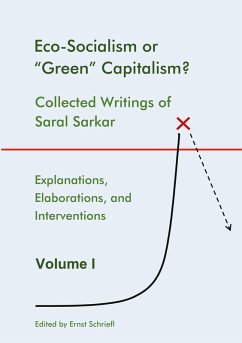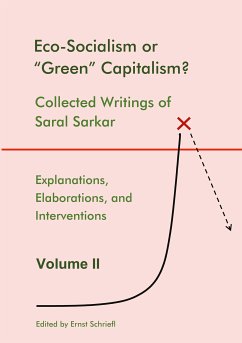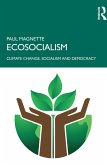After the ignominious fall of the classical Soviet model of "socialism" in the early 1990s, socialists, communists, and all other kinds of Leftists had felt to have been left in the lurch. With his book Eco-Socialism or Eco-Capitalism? A Critical Analysis of Humanity's Fundamental Choices (1999), Saral Sarkar presented and laid the theoretical foundation of a new conception of socialism, which convinced because it organically synthesized the newly arisen imperative of ecological sustainability and the old ideal of equality among members of humanity. On their part, all opponents of any kind of socialism have also been trying to somehow accommodate the inexorable insights and demands of true ecological sustainability in extant conceptions of capitalism. What they have achieved is not a synthesis, but merely a fake and self-contradictory phrase that does not deserve the prefix "Eco-", and should properly be called "Green"-Capitalism. But they succeeded in hoodwinking millions of worried human beings all over the world. In the last thirty years, Sarkar has been relentlessly trying through speeches and writings to counter their misconceptions of the ecological and social imperatives. In the present two volumes of his Collected Writings, readers will find some of the fruits of his endeavor
Dieser Download kann aus rechtlichen Gründen nur mit Rechnungsadresse in A, B, BG, CY, CZ, D, DK, EW, E, FIN, F, GR, HR, H, IRL, I, LT, L, LR, M, NL, PL, P, R, S, SLO, SK ausgeliefert werden.
Hinweis: Dieser Artikel kann nur an eine deutsche Lieferadresse ausgeliefert werden.









